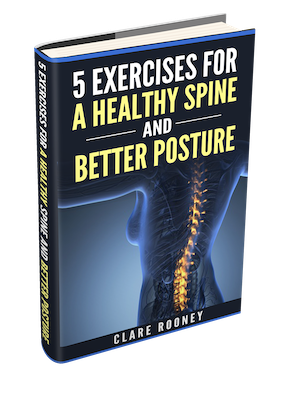The Psychology of Fat loss

The Pros and Cons of Boot Camps and Group Exercise
January 14, 2016
The Top 10 Mistakes in The Fat Loss Game
January 14, 2016In today’s blog I am going to look at some interesting ideas outside of training and nutrition that may just help you to progress further in that pesky war on fat!
- Hang a mirror in your kitchen.
Research at Cornell University in New York, US, showed that when you can see exactly how much you’ve been eating, you tend to eat almost a third less.
- Out of site, out of mind.
Do not leave food packages around on your kitchen table or anywhere in view. Tidy them away into your cupboards and fridge. Research from the journal Environment & Behaviour shows that foods on display tend to make you over eat!
- Bright lights, big appetite.
Dr Brian Wansink, Professor of nutritional Science at the University of Illinois has demonstrated that restaurant eaters seated in an area of bright lighting consumed more food than those seated in dim light areas. The theory is that artificial lights and can stimulate a stress response producing cortisol which in turn stimulates appetite.
- Colour me slim.
Research shows that the colour blue suppresses appetite as it’s rare in nature to find blue foods. So one strategy is to eat your food off blue plates. Conversely the colours red and orange stimulate appetite which can lead you to eat up to 33% more ( www.colormatters.com).
- Size matters!
This is an old one but no harm in revisiting it.
Moving from a 12-inch to a 10-inch dinner plate leads people to serve and eat 22% less (The Perils of Plate Size: Waist, Waste, and Wallet (2008), Brian Wansink and Koert van Ittersum, Journal of Marketing)
- You are who you spend time with.
“Tell me thy company, and I’ll tell thee what thou art,” (from Don Quixote)
Researchers say our risk of obesity increases 37% if our spouses are overweight (vs. 57% for overweight friends and 40% for overweight siblings).
- Christakis and J.H. Fowler, “The Spread of Obesity in a Large Social Network Over 32 Years,” New England Journal of Medicine 357(4): 370-379 (July 2007)
So just spending time with fit lean and healthy friends could make you leaner! Another good reason to have regular personal training sessions with someone in great shape (and ideally very knowledgeable and qualified as well!)
- Social gluttony!
People eat on average between 44% and 50% more in social situations (parties, eating out in a group) as demonstrated by appetite researcher Barbara Rolls at Penn State University.
Cut down on the social gatherings and eat more at home if fat loss is your goal.
- Low fat lies
Research shows that people who buy foods with low fat labels eat 16-23% more total calories per day. Sometimes if you think you are “being good” you compensate in other ways, in this case by overeating.
“Can Low-Fat Nutrition Labels Lead to Obesity? (2006), Brian Wansink and Pierre Chandon, Journal of Marketing Research 43:4 (November), 605-17..
Message? Ditch the low fat foods and eat real ones instead.
- That which is measured gets improved
This is a principle I learned from Charles Poliquin. If we regularly monitor certain variables for some psychological reason we can influence them for the better. This phenomenon was fabulously demonstrated by Tim Ferris in “The four hour body”. In it he recounts a story of an overweight male who if I remember correctly was a computer geek or statistician ( the guy loved numbers and quantification). He wrote down his weight and projected a time line several months ahead with a much lower weight and joined the two points. His goal was to keep his weight in line with the downward trajectory of his graph between two extremes. He made no effort to change his eating habits nor did he exercise. As the weeks went on his weight started to mirror the downward trajectory ( he was happy when he was bang on course and a little pissed if he lost too much weight !). At the end he reached his goal weight! What does this mean to you? Get your body fat tested regularly. Apart from the feedback of progress it could psychologically propel you forward to better results because you know you are being monitored. The reverse psychology of this would be only using the scale to measure progress. Last week I measured a client who lost 11 lbs of fat and gained 12 lbs of muscle . On the scale his body weight was up 1 lb! This could be psychologically damaging if we did not do a body comp test to see the true story.
- The placebo effect
This is another one I learned from Charles Poliquin. A study was done on a group of chamber maids (recent study by Harvard psychologist Ellen Langer) in a Hotel. One group was told that cleaning hotel rooms was fabulous exercise and would help with weight loss. The other group was told nothing. All persons in the study were weighed and at the conclusion of the study the group who were told that the work was great exercise all lost a statistically significant amount of weight! The other group did not lose weight. No dietary or other lifestyle changes were made.
In conclusion trying out some of these mental tricks might just help you drop a few extra pounds but until you reach the meditative capacity of the Dali Lama keep exercising and make good food choices too!





